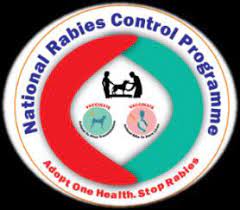National Rabies Control Programme (NRCP):

The Ministry of Health and Family Welfare has launched the National Rabies Control Programme (NRCP) for prevention and control of Rabies.
- Objectives of NRCP :
- Provision of rabies vaccine & rabies immunoglobulin through national free drug initiatives;
- Training on appropriate animal bite management, prevention and control of rabies, surveillance and intersectoral coordination;
- Strengthening surveillance of animal bites and rabies deaths reporting;
- Creating awareness about rabies prevention.
Rabies:
- Rabies is a vaccine-preventable, zoonotic, viral disease.
- It is caused by a Ribonucleic Acid (RNA) virus that is present in the saliva of a rabid animal (dog, cat, monkey, etc).
- It is invariably transmitted following a bite of an infected animal that leads to deposition of the saliva and the virus in the wound.
- Once clinical symptoms appear, rabies is virtually 100% fatal. The death invariably occurs in four days to two weeks due to cardio-respiratory failure.
- In up to 99% of cases, domestic dogs are responsible for rabies virus transmission to humans.
- The incubation period varies from 2–3 months but may vary from 1 week to 1 year, or rarely even more.
- Symptoms:
- The first symptoms of rabies may be similar to flu and may last for a few days, which includes:
- Fever, Headache, Nausea, Vomiting, Anxiety, Confusion, Hyperactivity, Difficulty swallowing, Excessive salivation, Hallucinations, Insomnia.
- The first symptoms of rabies may be similar to flu and may last for a few days, which includes:
- Treatment:
- Rabies can be prevented by vaccinating pets, staying away from wildlife, and seeking medical care after potential exposures before symptoms start.




